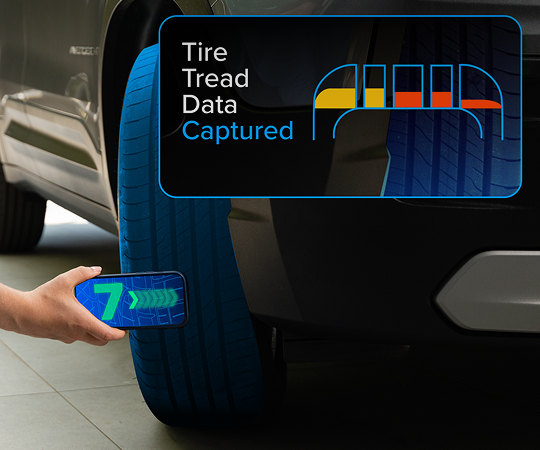
Tires are Critical for Optimal Fleet Performance
There’s a direct correlation between a fleet operator’s tires and the operator’s success. The simple fact is that tires keep trucks moving, and any type of delay is costly. Add to that the importance of tires when it comes to safety and overall efficiencies, and you can easily see the relationship between operator success and tire management. Ultimately, it directly impacts profits.
In a recent conversation with Brian Cunningham, the Vice President of Fleet Sales at Bridgestone, one of the oldest and largest tire and rubber companies, we spoke about the importance of technology and tire management. Brian, a 26-year veteran of the industry, fully understands this as the person in charge of the company’s sales.
He shared, “You know, a lot of us forget that the tires are the only thing that touch the ground in that vehicle when it’s moving. And, you know, drivers and operators of vehicles need to know what’s going on with those tires. So, it’s much, much more than buying a tire. That’s the lowest cost. It’s a total cost of ownership.”
He continues, speaking of tires as a forgotten component of fleet safety, “It’s unless it goes bad on you, you don’t think about it…” Being proactive is critical, and today, there’s technology to ensure that’s possible. He shares, “We now have algorithms that will tell you what a slow leak on a tire will do to that tire within so many days.”

Manufacturers Hold Responsibility for Efficiencies and Safety
When discussing the importance of tire safety as well as where accountability lines when it comes to safety and efficiencies, Brian shares, “You know, we as a manufacturer of those products have to make sure we’re delivering a product that is safe and efficient. And with some of the monitoring technologies that we have, we can also be proactive… whether it be drive–over mats or cameras that monitor tires, it’s becoming all too commonplace that we’re all in this together to make sure safety and cost of ownership is driven down.”

The Importance of Retreading
When it comes to picking the most important aspects of a fleet and operator business when it comes to the role that tires play in safety, Brian shares that one area that needs more attention from fleet operators is retreading. “Bridgestone goes to market with Bandag Retreat, an over 60-year-old company that really invented retreading. You know, we jokingly like to say that Bandag was green before green was cool. It was, and it really is. And so, we really stress that that total cost of ownership with the retreading if you don’t have a good retread program and you’re not buying a new tire that has a good casing that can be retreaded, you can run into issues.”
Why does it matter? There are numerous notable reasons, but Brian shares, “It’s sustainable. What helps it helps our world, you know, with production of retreads over new tires, it also is cost effective for the end user. When you’re talking 30% to 50% less cost for a retread, you know, having less tires in the landfill, and more.”

How Bridgestone Is Leveraging Tire Telematics
Bridgestone is at the forefront of telematics. “We purchased Azura a few years back as a telematics provider here in North America. Wesley Solutions is mostly in Europe, and what we’re learning as we go, I would say there’s a lot of capabilities that were interacting with each other. So, we have tire monitoring services now,” shares Brian. There are numerous companies offering telematics services and Brian calls it a “race” to the top.
He continues, “I think at the end of the day, we’re trying to do something to better our society.” There are many reasons to be involved in technology, he believes. “Telematics is there to provide more safety for everyone involved. It’s there to provide lower cost of ownership. And it’s also there to help the sustainability efforts of a country,” he also notes.



